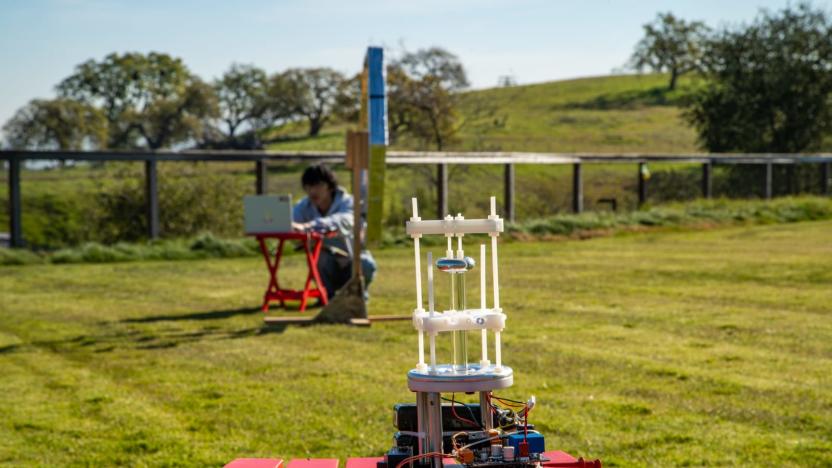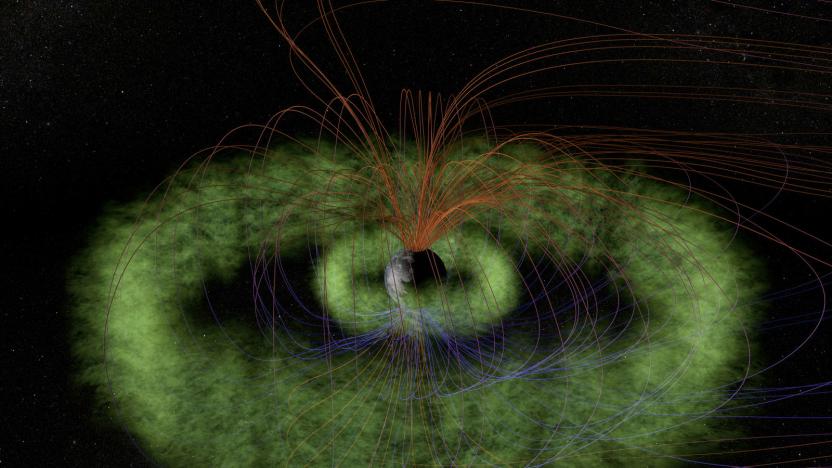vlf
Latest

This four-inch antenna could let you text from deep underground
There's a reason that scuba divers use sign language and that caves and tunnels create radio dead zones. The laws of physics prevent radio signals from penetrating materials like water, soil and stone, and that's been a frustrating limitation of modern wireless communication. Now, the Department of Energy's SLAC National Accelerator Laboratory might have a solution: a four-inch-tall, pocket-sized antenna that emits very low frequency (VLF) radiation.

Earth's radio signals may be protecting it from space radiation
The Earth's atmosphere bears precious little resemblance to what it looked like at the start of the Industrial Revolution. As radio technology has advanced and spread, the signals that transmitters produce -- specifically the Very Low Frequency (VLF) variety -- have changed the way that the upper atmosphere and the Van Allen Radiation Belts interact, according to a study recently published in the journal Space Science Reviews. In effect, these radio waves may be enveloping the globe like an electromagnetic comforter, protecting it from satellite-frying space radiation.

New "underground radio" tech provides emergency communication
Just don't call it radio. Vital Alert's new wireless tech uses Very Low Frequency (VLF) to penetrate earth, skyscrapers, subways and ocean with two-way digital text and voice communication. Their Emergency Broadcast Network (EBN -- dang we're good) has now been licensed by Los Alamos National Laboratory for use by emergency personnel in urban centers and underground mining. Beyond communicating with victims and rescue teams, the tech allows for location tracking, and obviously avoids the signal pitfalls of normal GPS and radio systems. Apparently the "fail-safe" tech is also relatively cheap to implement, and should be coming soon to an emergency near you.


